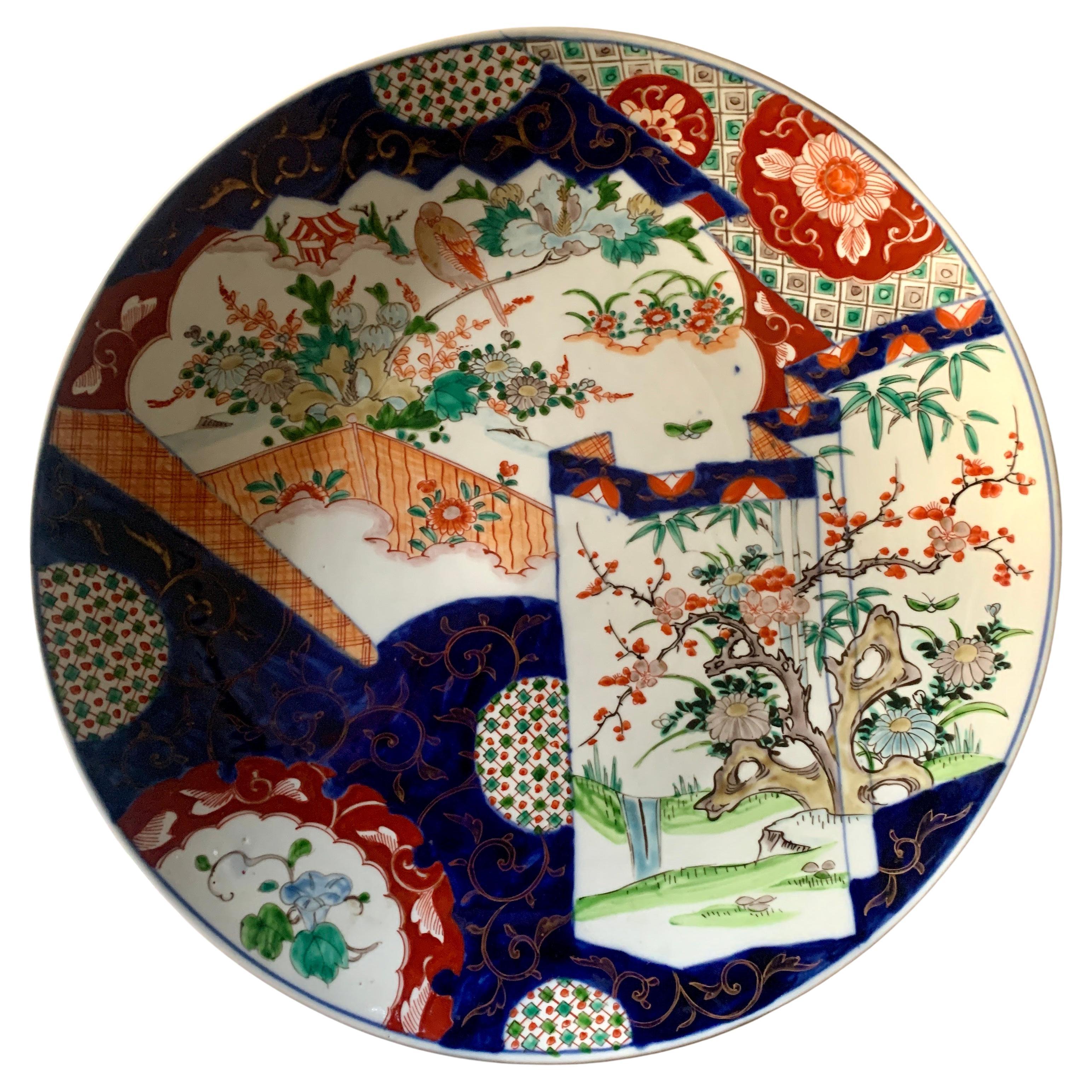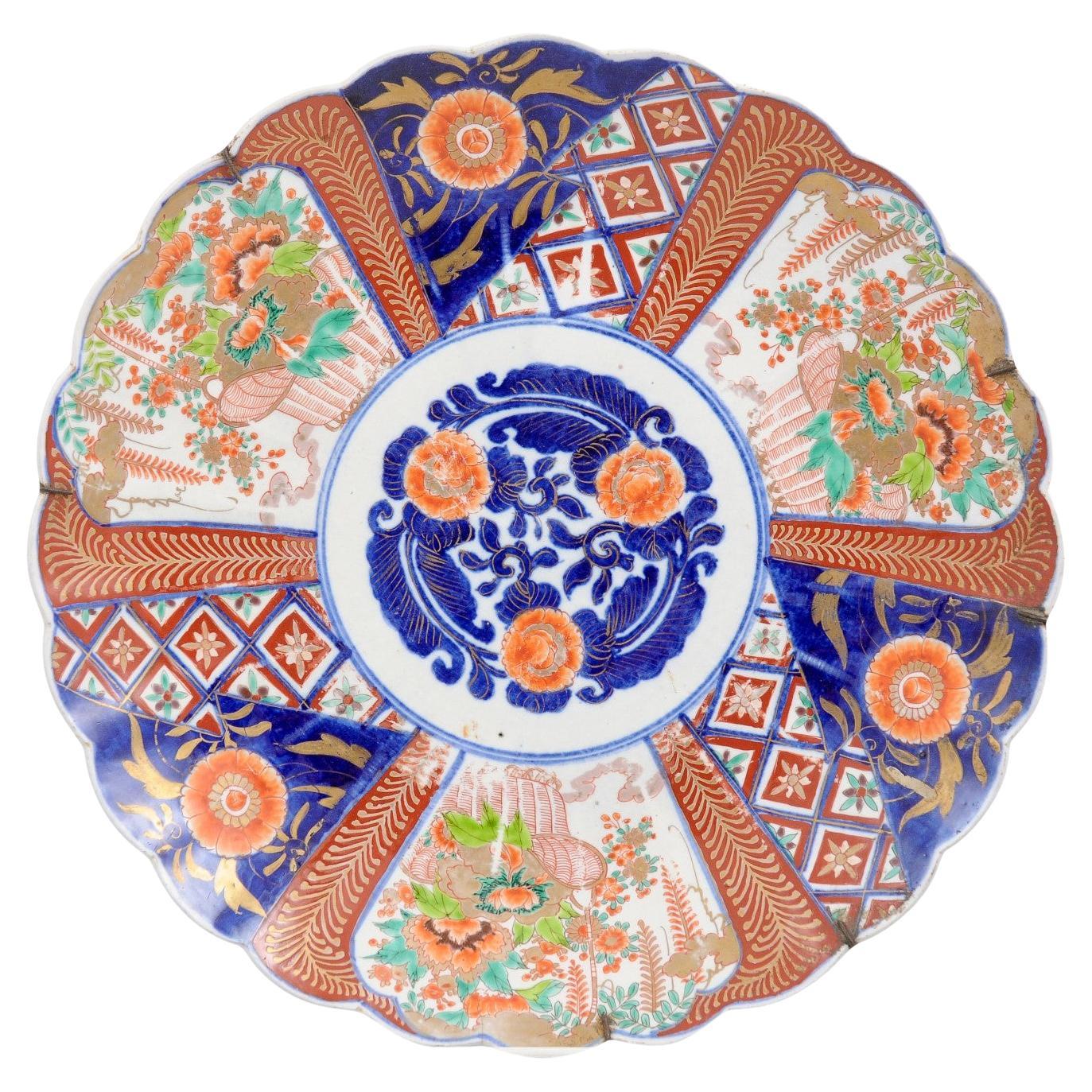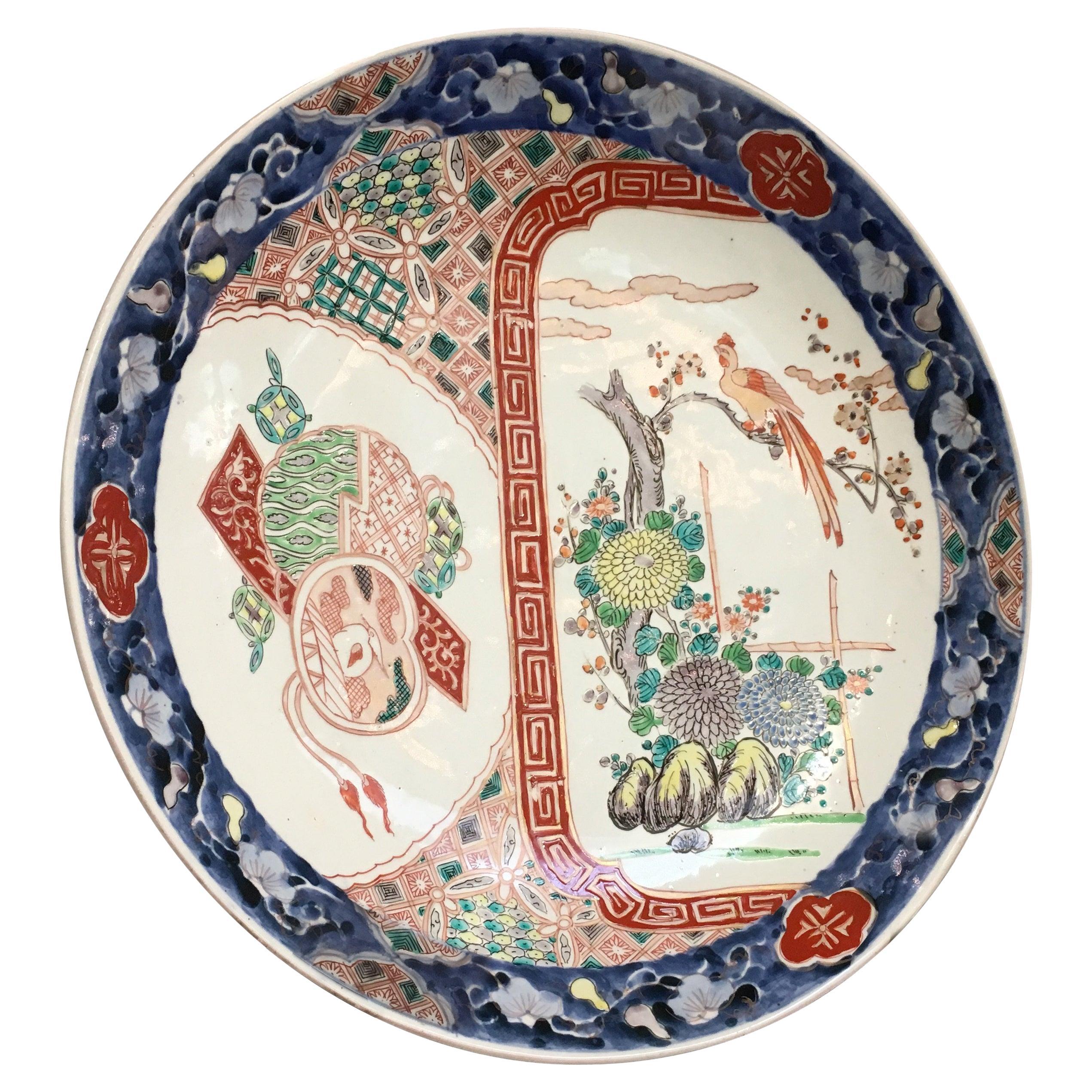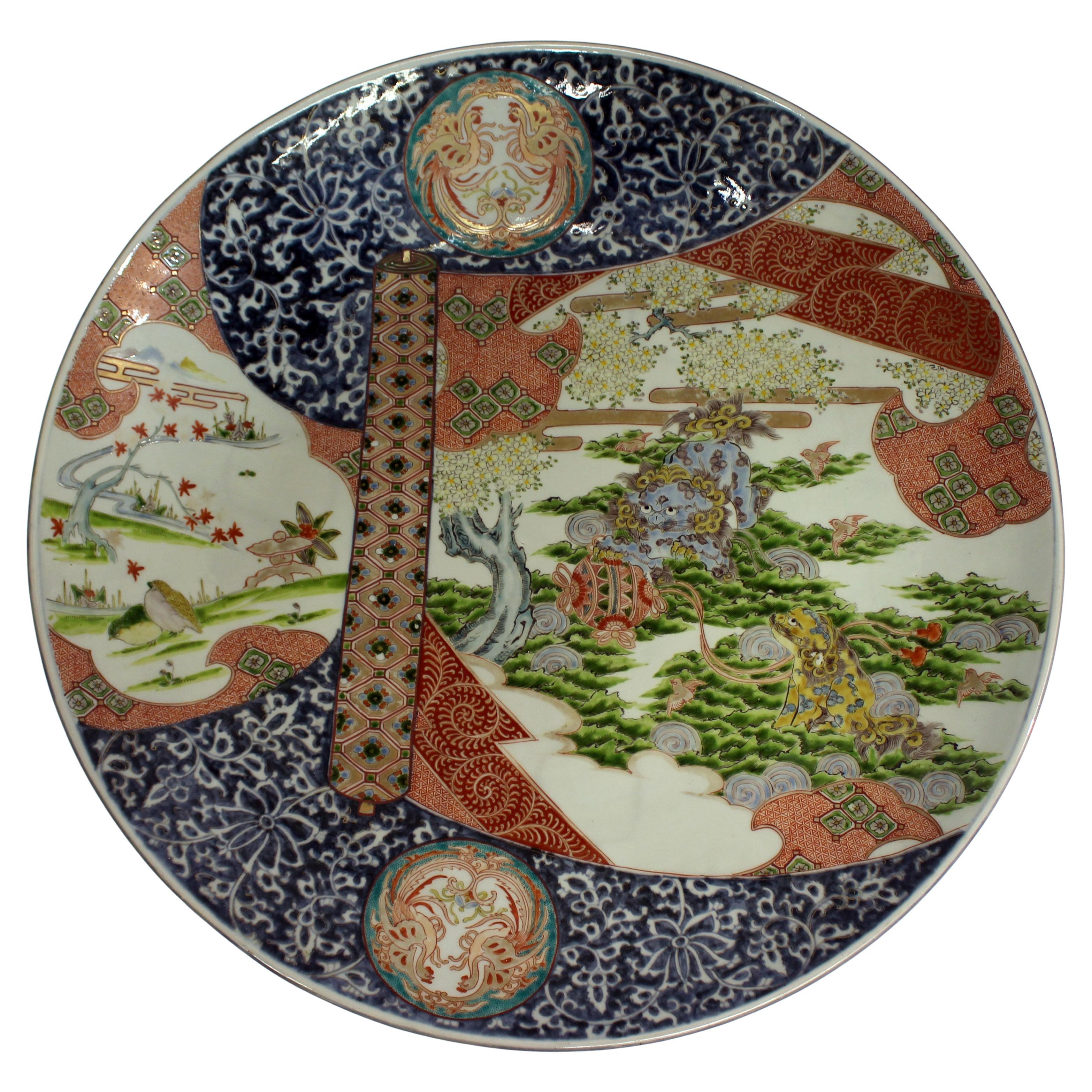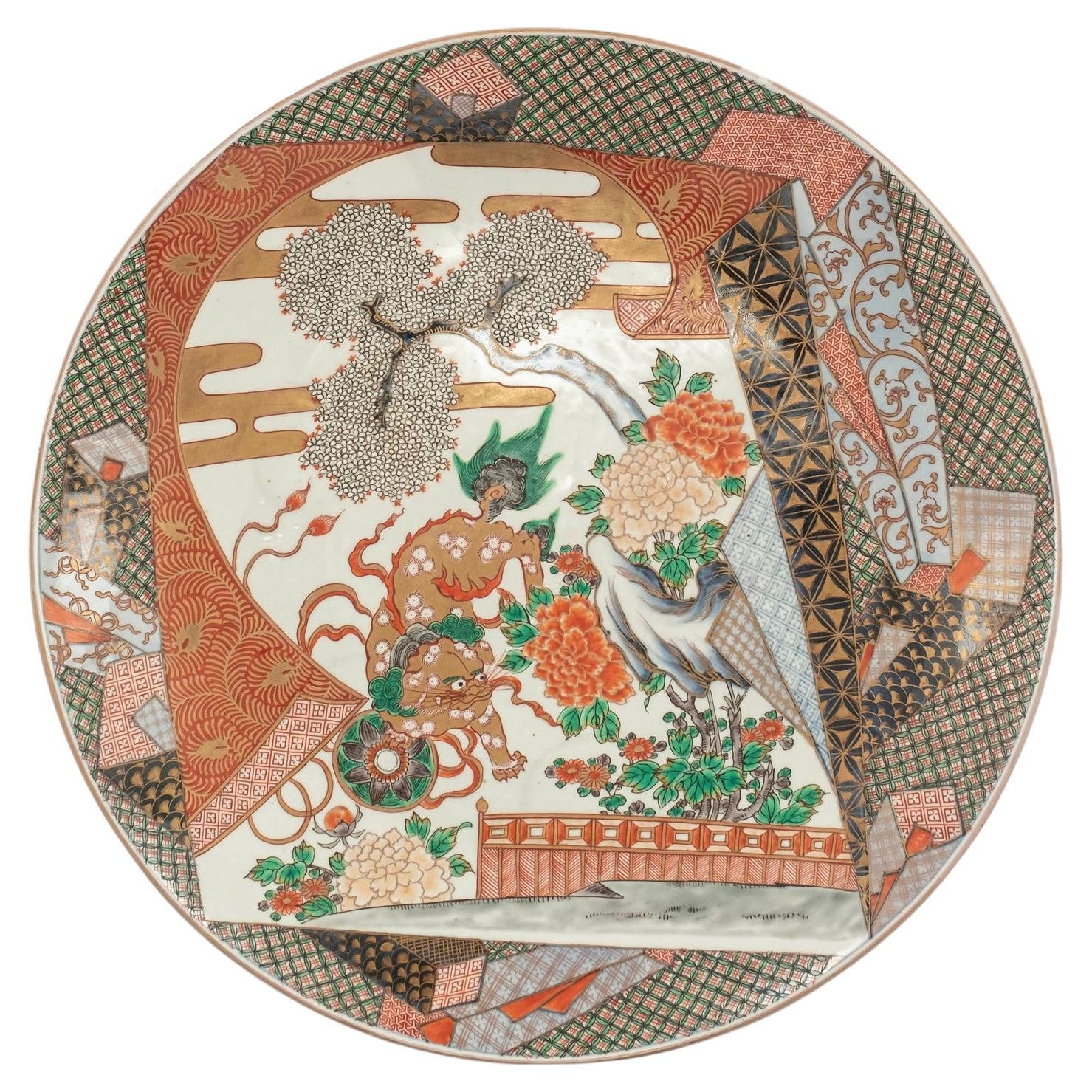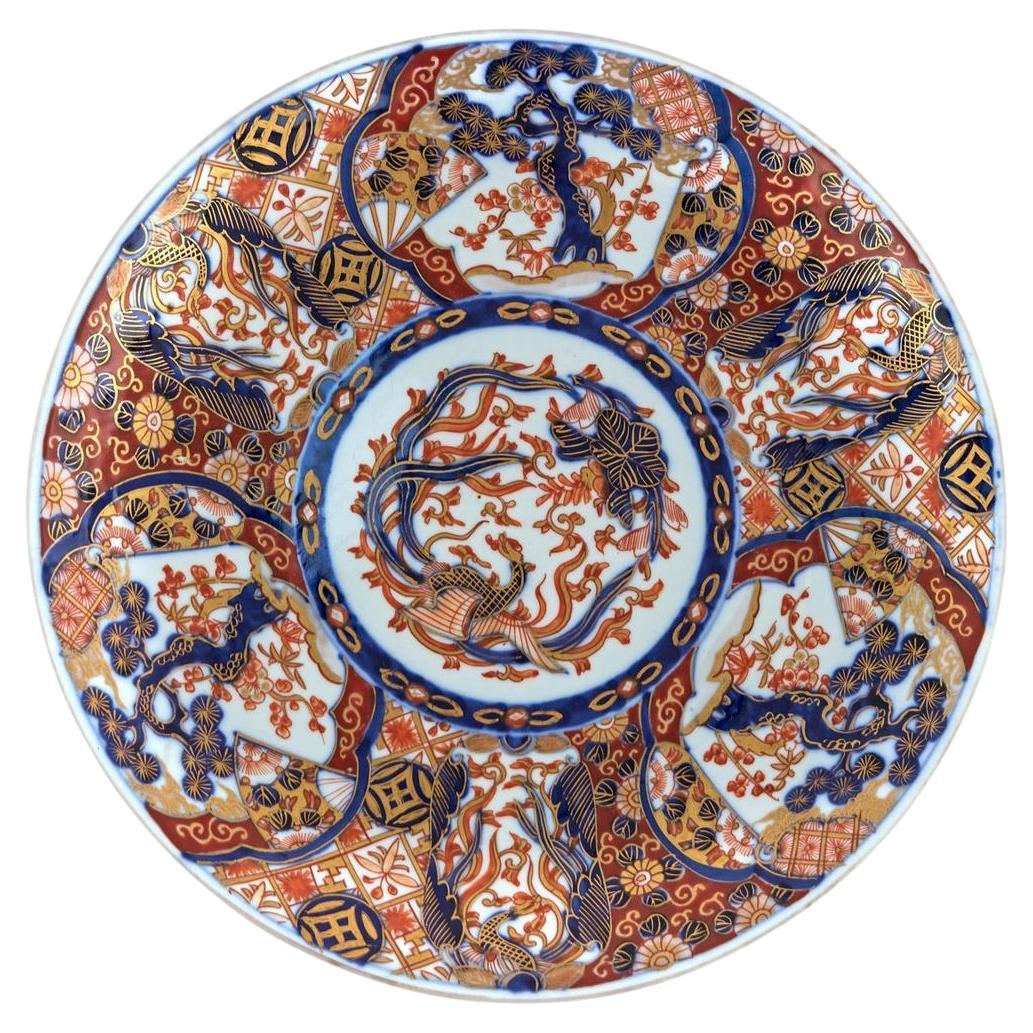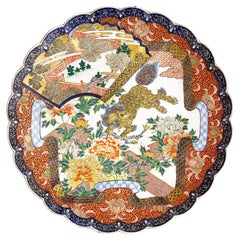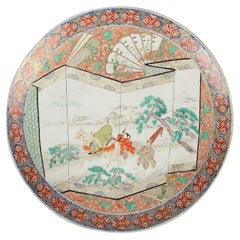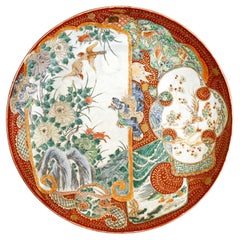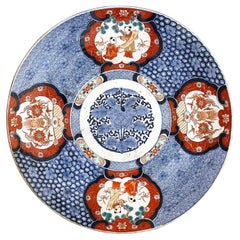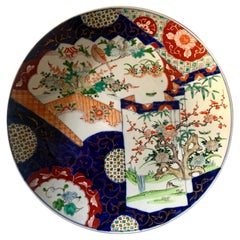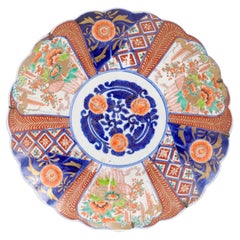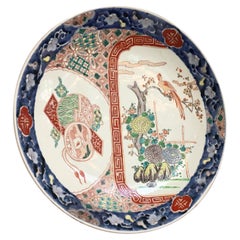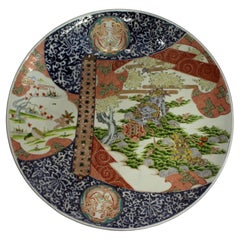Want more images or videos?
Request additional images or videos from the seller
1 of 9
Meiji period, Japanese Imari charger.
$1,158.28
£850
€1,001.81
CA$1,594.12
A$1,776.81
CHF 932.23
MX$21,697.79
NOK 11,804.10
SEK 11,156.67
DKK 7,476.95
About the Item
A very decoration late 19th Century, Meiji period Japanese Imari porcelain charger, depicting Prunus blossom to the ground, two fans one with a mythical bird the other with Cranes in flight.
Batch 81 G332/24 UNKZ
- Dimensions:Height: 18.51 in (47 cm)Diameter: 18.51 in (47 cm)
- Materials and Techniques:
- Place of Origin:
- Period:
- Date of Manufacture:1890
- Condition:Wear consistent with age and use.
- Seller Location:Brighton, GB
- Reference Number:Seller: SKU000023621stDibs: LU1227241810742
About the Seller
5.0
Platinum Seller
Premium sellers with a 4.7+ rating and 24-hour response times
1stDibs seller since 2015
494 sales on 1stDibs
Typical response time: 1 hour
Associations
LAPADA - The Association of Arts & Antiques Dealers
- ShippingRetrieving quote...Shipping from: Brighton, United Kingdom
- Return Policy
Authenticity Guarantee
In the unlikely event there’s an issue with an item’s authenticity, contact us within 1 year for a full refund. DetailsMoney-Back Guarantee
If your item is not as described, is damaged in transit, or does not arrive, contact us within 7 days for a full refund. Details24-Hour Cancellation
You have a 24-hour grace period in which to reconsider your purchase, with no questions asked.Vetted Professional Sellers
Our world-class sellers must adhere to strict standards for service and quality, maintaining the integrity of our listings.Price-Match Guarantee
If you find that a seller listed the same item for a lower price elsewhere, we’ll match it.Trusted Global Delivery
Our best-in-class carrier network provides specialized shipping options worldwide, including custom delivery.More From This Seller
View All19th Century Japanese Imari charger, 22.5" diameter .
Located in Brighton, Sussex
A good quality late 19th Century Japanese Imari porcelain charger, depicting a mythical Foo Dog playing among flowers and foliage. Classical motif decoration to the boarders and the ...
Category
Antique Late 19th Century Decorative Dishes and Vide-Poche
Materials
Porcelain
Large Japanese Imari Charger, circa 1880. 21.5" (55cm)
Located in Brighton, Sussex
A very good quality late 19th Century Japanese Imari porcelain, hand painted charger depicting a six fold screen with a men on horse back in a rural mountainous setting. Fans, floral...
Category
Antique 19th Century Japanese Porcelain
Materials
Porcelain
Japanese Imari charger, C19th, 56cm diameter
Located in Brighton, Sussex
A good quality, decorative Japanese Imari charger, having classical motif decoration to the board, inset panels depicting exotic birds, flowers and blossom trees.
Batch 82 N/H
Category
Antique Late 19th Century Japanese Decorative Art
Materials
Porcelain
Large Japanese Imari charger, C19th, 58cm diameter
Located in Brighton, Sussex
Large Japanese Imari porcelain charger, depicting classical motif decoration, with a blue ground and four red panels with scholars, children and mythical creatures.
Batch 82 N/H
Category
Antique Late 19th Century Japanese Decorative Art
Materials
Porcelain
Japanese Imari charger, Meiji period.
Located in Brighton, Sussex
A good quality late 19th Century Japanese Imari porcelain charger having classical motif decoration to the whole, with typical blue and orange imari colours.
Batch 82 N/H
Category
Antique Late 19th Century Japanese Contemporary Art
Materials
Porcelain
Japanese Imari plate, circa 1890, 55cm dia.
Located in Brighton, Sussex
A very good quality late 19th Century Japanese Imari charger, having wonderful orange ground with scrolling foliate gilded highlights, motif decoration too the boarders, inset hand p...
Category
Antique Late 19th Century Japanese Decorative Art
Materials
Porcelain
You May Also Like
Meiji Japanese Porcelain Imari Charger
Located in Los Angeles, CA
18 Inch Japanese Imari Charger - very large and decorative. The mixed illustrative painted scenes are with great pattern and texture, and mixed with floral and organic images of blos...
Category
Antique 19th Century Japanese Meiji Ceramics
Materials
Porcelain
19th Century Japanese Imari Charger
Located in Atlanta, GA
19th Century Japanese Imari Charger
Category
Antique 19th Century Japanese Tableware
Materials
Porcelain
Japanese Imari Charger, Meiji Period, Late 19th Century
Located in Austin, TX
A nicely decorated Japanese Meiji Period Imari charger, late 19th century, Japan.
The porcelain charger featuring a design of a hoho bird, or phoenix, per...
Category
Antique Late 19th Century Japanese Meiji Platters and Serveware
Materials
Enamel
Circa 1860-80 Japanese Imari Grand Scale Charger
Located in Chapel Hill, NC
Circa 1860-80 Japanese Imari Grand Scale Charger. Meiji period. Superbly decorated with naturalistic reserves & asymmetric diapered panels; note the foo dog pair. 24.25" dia., 3 3/8"...
Category
Antique Late 19th Century Japanese Meiji Ceramics
Materials
Ceramic
19th Century Japanese Imari Charger
Located in Houston, TX
Late 19th Century Japanese Imari charger featuring a lion-in-nature scene.
Category
Antique Late 19th Century Japanese Porcelain
Materials
Porcelain
Antique Japanese Imari Charger
Located in Ipswich, GB
Antique Japanese Imari Charger having foliate and bird decoration, impressed mark and three character marks to base. Lovely colours and condition.
Category
Early 20th Century Ceramics
Materials
Ceramic
More Ways To Browse
Japan Hand Painted Porcelain
Japanese Fans
Japanese Porcelain Bird
Imari Bird
Antique Hand Painted Fan
Meiji Cranes
Porcelain Crane
Japanese Ceramics Cranes
Imari Fan
Meiji Period Imari Charger
Imari Crane Charger
Antique Porcelain Letters
Ap Ceramics
Blue Compote
Bone China Bowl
Chantilly Porcelain
Chocolate Cup
English Royal Crown Derby
